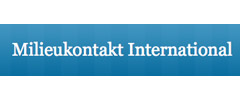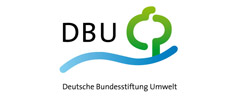Green and Gender sensitive Jobs in a climate-challenged world
WECF welcomes Green Jobs report at UNEP Governing Council Meeting in Monaco
25.02.2008 |Chantal van den Bossche
Monaco/Utrecht, The Netherlands, 22nd of February. The pace of Green Job creation is likely to accelerate in the next couple of years, with a multitude of different policy initiatives and responses to environmental threats such as climate change currently being implemented and studied at all levels of government and society. An emerging green and sustainable economy will create large numbers of green jobs across many sectors of the economy.
UNEP, the United Nations Environment Program, ILO, the International Labour Organisation and ITUC, the International Trade Union Confederation have joined forces and the first findings of their Green Jobs Report will be presented today, Friday the 22nd, at the closing day of the 10th Special Session of the Global Ministerial Environment Forum of UNEP, which is taking place right now in Monaco. It is the biggest gathering of environment ministers since the climate change breakthrough in Bali. Under the theme "Mobilising Finance for the Climate Challenge", more than 100 ministers from across the globe are present at Global Ministerial Environment Forum (GMEF) alongside senior figures from industry and economics; science; local government; civil society, trade unions and intergovernmental bodies.
Green Jobs - Towards Sustainable Work in a Low-Carbon World
Women in Europe for a Common Future welcomes the new UNEP report, and stresses its gender sensitivity. According to Sascha Gabizon, Executive Director of WECF it is especially important from a gender perspective: "We see that in some regions of the world women are especially hired for bad quality jobs, e.g. women in the flower industry in Africa. And we see that women have different health risks from working in bad quality jobs, for example, women hairdressers have higher risks of breastcancer." She adds: "We see that women as the first environment for their children, are far too much exposed to hazardous chemicals in the workplace and this leads to exposure for their (unborn) children, which can often lead to life long health damage." [1]
Nuclear Jobs are Not Green Jobs
WECF is glad to see that the UNEP / Trade Union report states clearly that jobs in the nuclear industry are not consired green. "Nuclear energy is again too often being mentioned as part of the solution. In the year 2000 the global environmental community managed to keep nuclear out of the Kyoto protocol. Without a UN rubberstamp of approval it is impossible for the nuclear industry to overcome the institutional hurdles they are facing", states Sabine Bock, WECF’s Energy & Climate Change coordinator: "We see that , in some countries, in an effort to give women equal job opportunities, women are now allowed to work in dangerous jobs, with exposure to, for example, radiation".
Nuclear should not be promoted as a solution for climate change
There are many arguments why nuclear energy should not be considered as part of the solution to climate change, according to WECF. It is far too unsafe and "Promoting nuclear energy is irresponsible, as none of the countries currently using nuclear technology have been able to find a solution to protecting populations living near uranium mines, plutonium waste storage and near nuclear power plants themselves from radiation. According to research of the German Environmental Institute, a partner of WECF, it has been proved that the risk of childhood cancer in our youngest children under 5 years, living in the vicinity of operating power plants is statistically significantly increasing. Each child getting ill by cancer is one child too much." [2] We call on governments and the private sector to shift from investments in nuclear industry to investments in renewable energies, which allow much more safe jobs to be created, and that do not put in danger the women and children living in their vicinity.
Asbestos a workers' killer in the building industry
Another important issue being mentioned in the Green Jobs report is asbestos. Sascha Gabizon: "Asbestos has lead in the past decades to thousands of terrible deaths and is still widely used in countries and regions like India, Russia, Ukraine and Central Asia." Sascha Gabizon, executive director of WECF states, "in Europe we have thousands of victims from asbestos. It is a terrible way to die. Workers in the building industry are most at risk, but also the populations are exposed to the fine fibres in the air. We are very concerned to see how the asbestos industry in the Eastern Europe and Central Asia is propagating a myth that their asbestos is not dangerous to health, and that schools, kindergartens and playgrounds are build with asbestos, and that their governments are not taking any measures to ban the further use of asbestos."
Gender criteria for post-Kyoto mechanisms
WECF is concerned about the effects of climate change and the burdens that climate-related changes and disasters put on women, men and children, including health, environmental, and economic impacts in our region and globally. Gabizon adds: "We therefore demand a strong political commitment from every Government in the world to work for a far-reaching post-Kyoto regime. This regime can only be successful if the perspectives of women are fully taken into account. Financial mechanisms need to have criteria which assure that they will not have negative effects on women and children, as has been the case with a number of Clean Development Mechanism Projects."
"We hope that the final decisions being made in Monaco right now will not only focus on financing large maize fields in developing countries, where women labourers are exposed to pesticides, to fuel the Yachts and Bentleys of the affluent people in this world, but, that governments will focus on financial mechanism which will - unlike the CDM - benefit the poor, those who are losing their livelihoods from draughts and floods. We also ask governments not to focus your investments in export taxes and investments benefits for nuclear industry, which is not a sustainable energy solution, but an industry which causes great health damage for the poor communities living near the uranium mines, whose human rights are often not respected. We women are very concerned about this, as UN statistics show that women make up to 70% of the poor, and are doubly affected as they often have to care also of the ill and deprived. We see that there are more and more environmental refugees, and again, the majority are women and children. We call on your sense of responsibility, to make Climate Justice a priority issue in your decisions these days."
[1] The Faroes Statement: Human Health Effects of Developmental Exposure to Chemicals in Our Environment
[2] www.bfs.de/de/kerntechnik/papiere/kikk.html; www.wecf.eu/english/articles/2007/12/kinderen_kanker.php; www.wecf.eu/english/articles/2007/12/bali_nuclear.php
Interesting dates and times for the press
The United Nations Environment Program - UNEP organizes a Special Event on "Green Jobs: Towards Sustainable Work in a Low-Carbon World" to be held on Friday, February 22nd 2008 from 13.30 to 14.30 atthe Van Dongen Room, Grimaldi Forum, Monaco.
Women in Europe for a Common Future (WECF)
WECF is a network of 80 organizations in Western and Eastern Europe, the Caucasus and Central Asia working on sustainable development, health and environment and poverty reduction. WECF strives for a Healthy Environment for All.
For more information and pictures please contact:
Sascha Gabizon, Executive Director WECF, +49-172 86 37 586
Chantal van den Bossche, NL press officer, +31-6 2812 9992, chantal.vandenbossche(at)wecf.eu
Johanna Hausmann, DE press officer, + 49 89 232393819, Johanna.hausmann(at)wecf.eu
Women in Europe, +31 30 2310300, wecf@wecf.eu, www.wecf.eu, www.womenineurope.eu


































